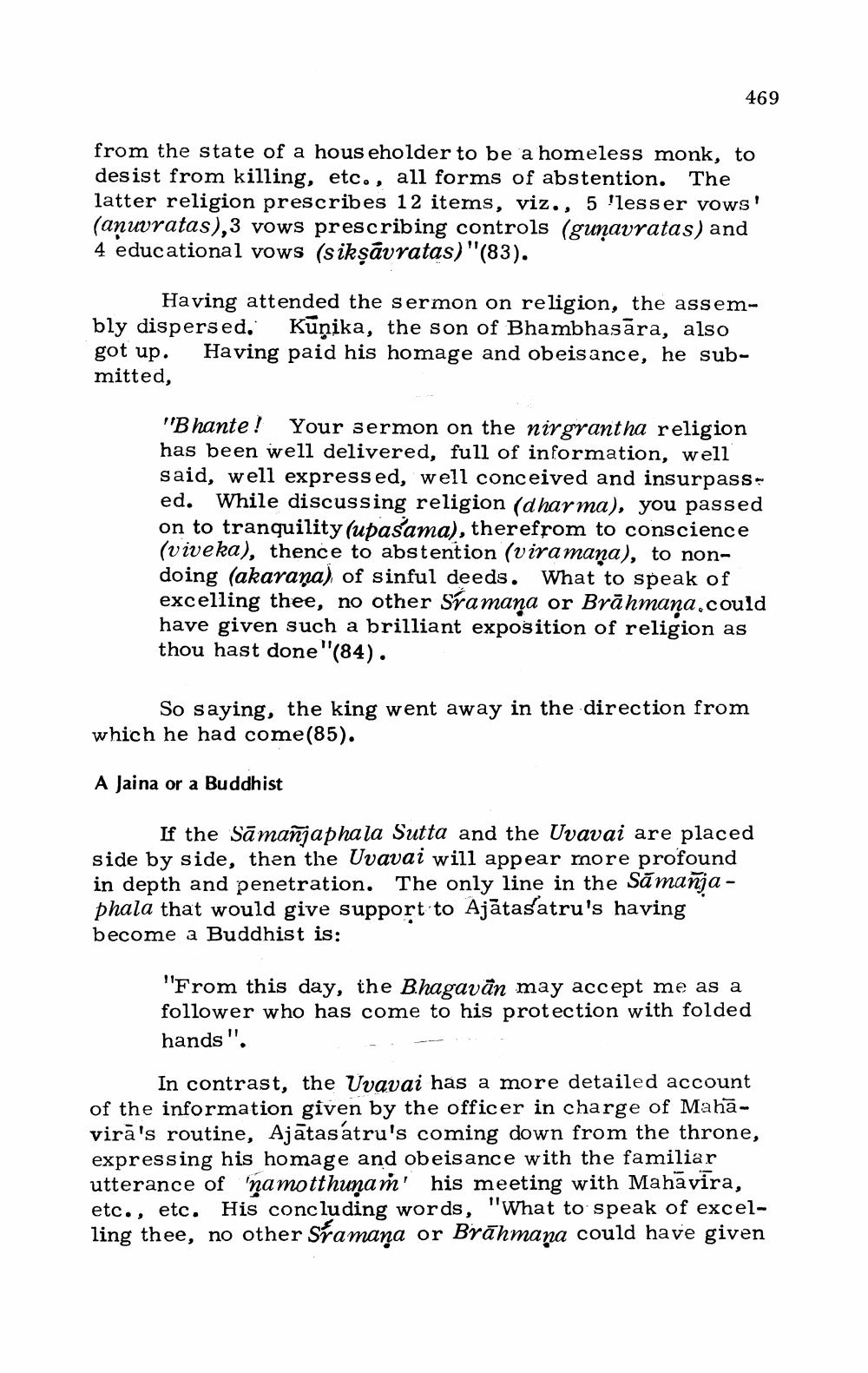________________
469
from the state of a householder to be a homeless monk, to desist from killing, etc., all forms of abstention. The latter religion prescribes 12 items, viz., 5 'lesser vows' (anuvratas), 3 vows prescribing controls (gunavratas) and 4 educational vows (sikşāvratas) "(83).
Having attended the sermon on religion, the assembly dispersed, Kunika, the son of Bhambhasara, also got up. Having paid his homage and obeisance, he submitted,
"Bhante! Your sermon on the nir grant ha religion has been well delivered, full of information, well said, well expressed, well conceived and insurpass. ed. While discussing religion (dharma), you passed on to tranquility (ubasama), therefrom to conscience (viveka), thence to abstention (viramana), to nondoing (akarana) of sinful deeds. What to speak of excelling thee, no other Sra mana or Brāhmana,could have given such a brilliant exposition of religion as thou hast done"(84).
So saying, the king went away in the direction from which he had come(85).
A Jaina or a Buddhist
If the Sāmañjaphala Sutta and the Uvavai are placed side by side, then the Uvavai will appear more profound in depth and penetration. The only line in the Să mañja - phala that would give support to Ajātas'atru's having become a Buddhist is:
"From this day, the Bhagavān may accept me as a follower who has come to his protection with folded hands".
In contrast, the Uvavai has a more detailed account of the information given by the officer in charge of Mahavirā's routine, Ajātasatru's coming down from the throne, expressing his homage and obeisance with the familiar utterance of namotthunań' his meeting with Mahavira, etc., etc. His concluding words, "What to speak of excelling thee, no other Sramana or Brāhmana could have given




